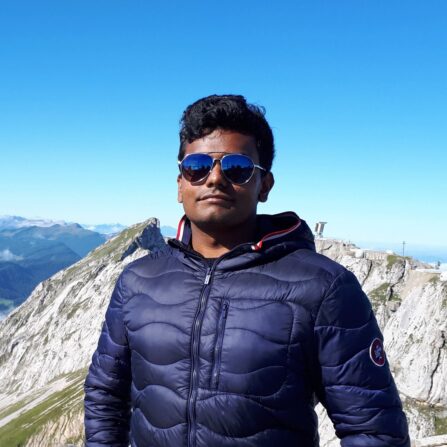
Kevin R.
BSc in Computer Science and Physics (Joint Honours)Which university are you studying at?
Durham University.
What subjects and qualifications did you take at school or college (e.g. A Levels, IB, BTECs, EPQ)?
I did A-level Physics, Chemistry, Maths and Further Maths.
Why did you decide to pursue this degree at university?
Throughout high school, Physics was a subject I really enjoyed studying just for its sheer breadth and depth. It also gave me a chance to study and apply branches of Maths I was interested in. Although I did not formally study much computer science at school, coding seemed pretty cool. It is also, as I later discovered, an integral part of Physics and most modern sciences! So studying computer science really helped me appreciate and understand how a lot of the modelling in Physics and Maths happens behind the scenes.
What does an average day or week at university look like for you (e.g. lectures, practicals, independent study, other interests)?
It’s a mix of 1 to 3 lectures a day, a physics lab about once a week (although they became fortnightly because of COVID) and about 4 or 5 small group teaching and learning sessions (i.e. physics tutorials, workshops and computer science practicals) a week.
What aspect of your course do you most enjoy?
Modelling the different phenomena and studying new maths! A lot of the coding I learn in physics and computer science can be applied to one another, allowing me to quickly simulate and code some pretty interesting phenomena from the theory I learn (everything from the motion of dust in 3D space to the distribution of stars in the Milky Way, or the likelihood of finding quantum particles in different energies). Mathswise, a lot of the physics we study involves maths we hadn’t formerly learnt. So being taught maths before or during the lecture on some physics topic really gives insights into what motivated the maths to be the way it is, especially in fields like quantum mechanics where maths had to be built over the last century to describe observations.
What do you find most challenging about your degree?
Time management is something that I found early on to be incredibly crucial. It’s also important to keep pacing yourself and trying not to be bogged down by the competition. More often than not, different students excel at different parts of the course, so it’s best to compare yourself with your past performance rather than the current performances of everyone else!
What are your aspirations after your degree?
I’m really keen on going into the field of data science and research. The main motivation is that I love working at the cutting edge of something new and the idea of being one of the first people to observe something ever gets me super excited! Another reason is that a lot of industry research relies on the cutting edge of technology, in terms of machine learning and artificial intelligence or plain old statistics. So the idea of me applying these deep fields of maths to new problems is always exciting too!
What would be your top piece of advice for anyone wanting to study computer science and physics?
Go for it and throw yourself out there! Don’t be shy to try out and explore new things. And it’s what you learn and do that counts, not which university you go to learn or do it.

Comments